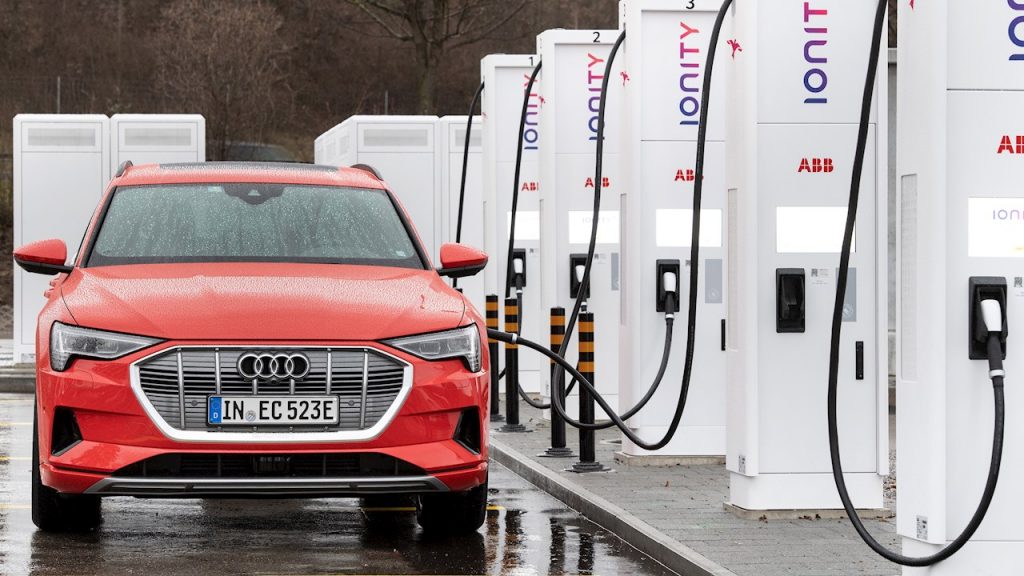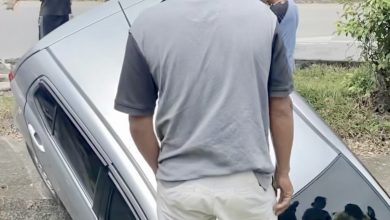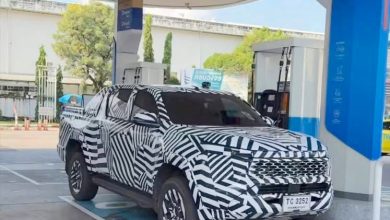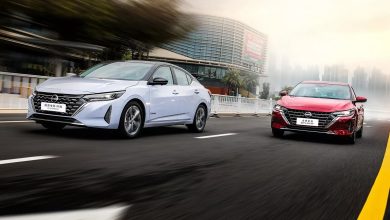SOCAR Set To Start An EV Car Sharing Program Locally
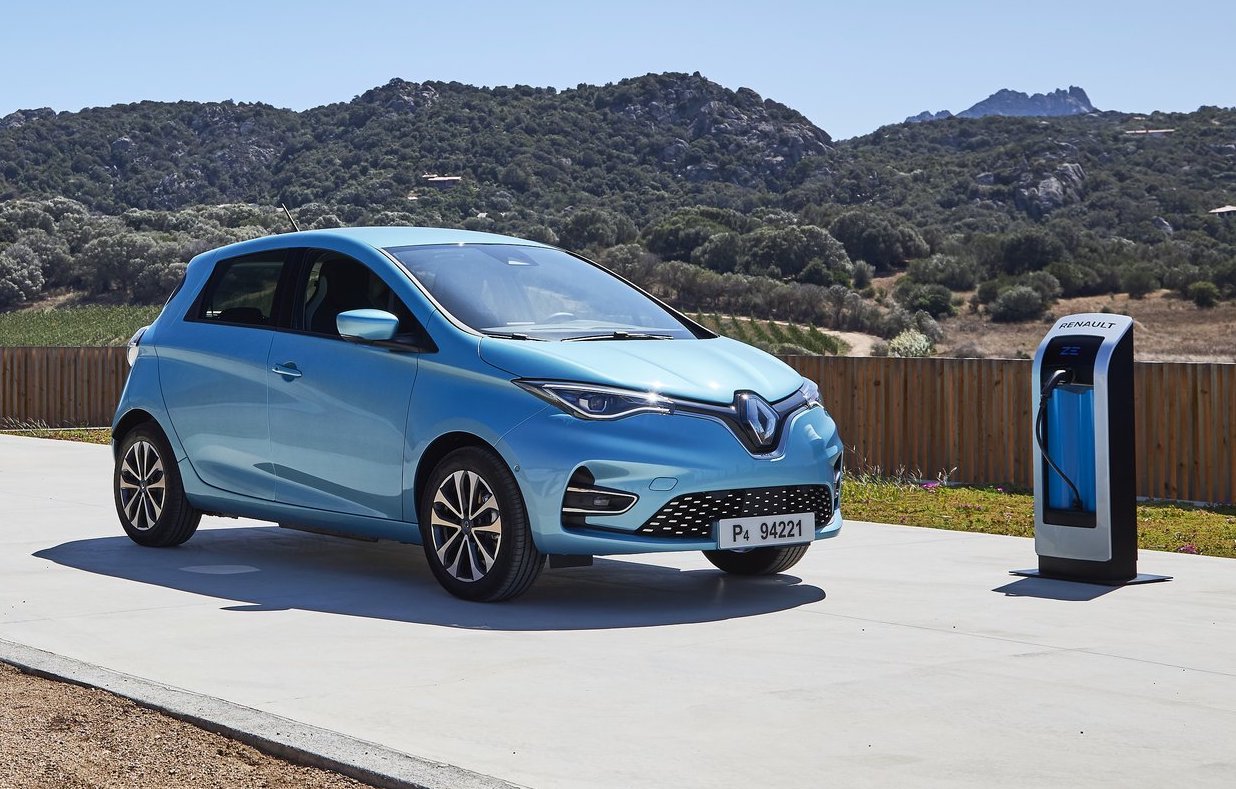
Could this endeavour by SOCAR be the way forward for widespread EV adoption in Malaysia?
There has been some talk recently that SOCAR could be expanding its EV car sharing fleet locally. Something that has been recently confirmed by the current Minister of International Trade and Industry, Azmin Ali, which went on to say in a tweet that the South Korean SK Group (parent company of SOCAR) ‘can certainly be a catalyst in leading our EV Acceleration Program under MITI’s leadership’.
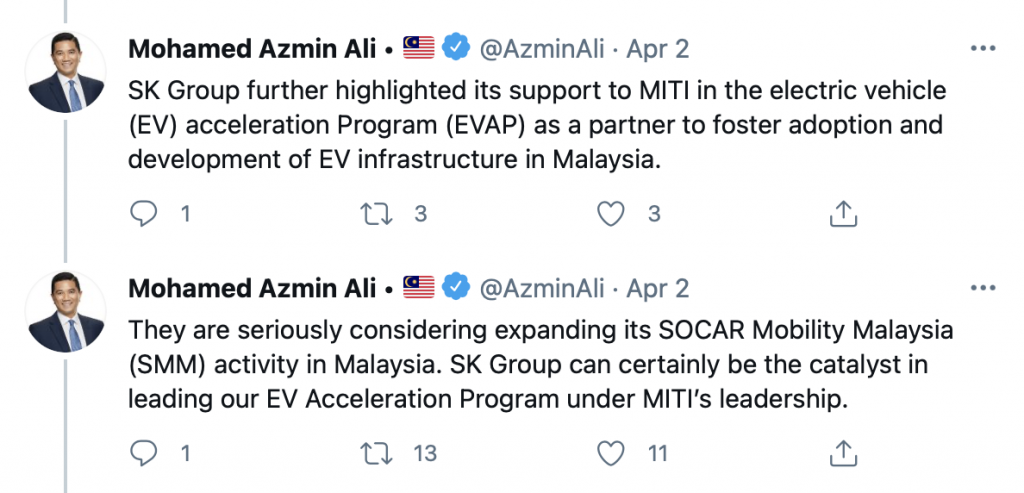
So can this therefore be the match that sparks the widespread adoption of EVs locally? Well in all reasonable possibility, probably yes(?)
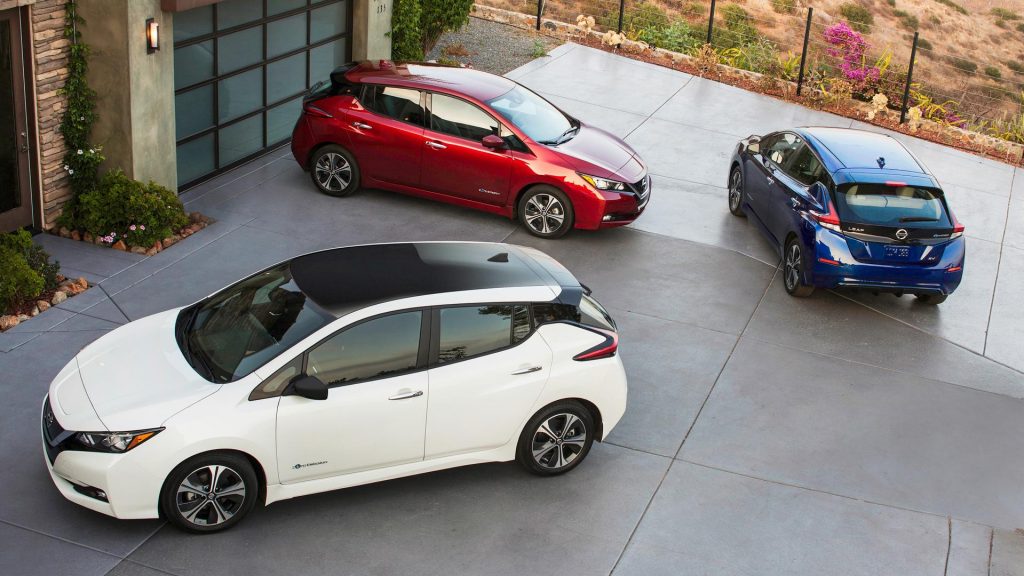
It perhaps needs to go without saying, but compared to the rest of the world, Malaysia is seriously lagging behind in the widespread adoption of EVs. Even in ASEAN itself, we as a nation are still flagging in the electrification effort. All while our neighbours like Singapore, Indonesia and Thailand are surging ahead in this field that many claim to be the future of the automotive industry.
However along with the shift in the form of propulsion of cars from fuel-burning to zero-emissions electric drive, there has also recently been a shift from car ownership to car rentals within the motoring masses. Such is evidenced by the number of long term car subscription and short term car leasing services that are currently available not just in Malaysia, but the world over too.
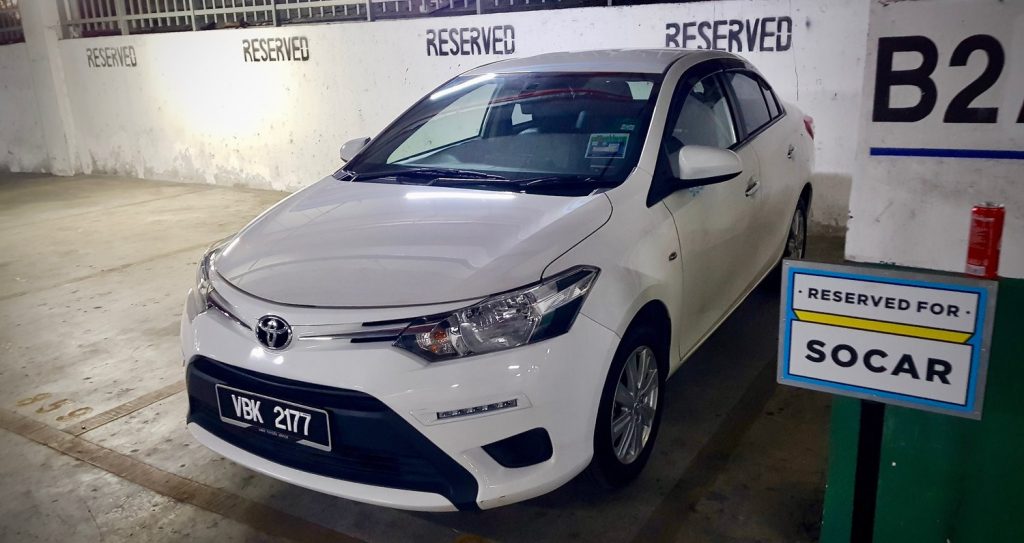
Thus there could be a strong case for SOCAR to be the one that leads the charge in the EV adoption over here with its electric car sharing program. This is instead of Malaysians having to wait on the various automakers to eventually start trickling in their all-electric offerings to our shores.
Moreover, the car sharing business model actually melds miraculously well with EVs to benefit both the car sharing company and the consumers. On the consumer front, the short distance commutes that are typically executed with these share cars means that there will most definitely be sufficient charge in these EVs for most of their needs. The hassle of long charging times could also a thing of the past too, as the customer can simply plug the car back into the bay when they’re done with it and walk away.
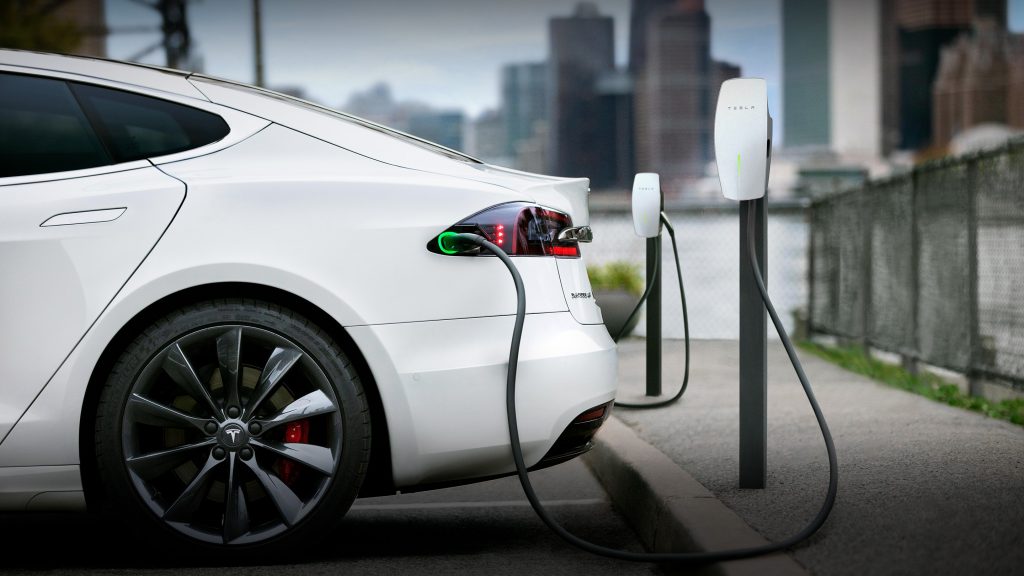
On the car sharing company’s part meanwhile, these fleet of EVs should be cheap to operate for the company due to the lack of any substantial servicing bills for electric cars. While there may be a higher up front cost for the car itself and installation of charging points at each of the car sharing bay, this expenditure however will probably be recouped several times over with the savings in fuel costs for these regularly used cars.
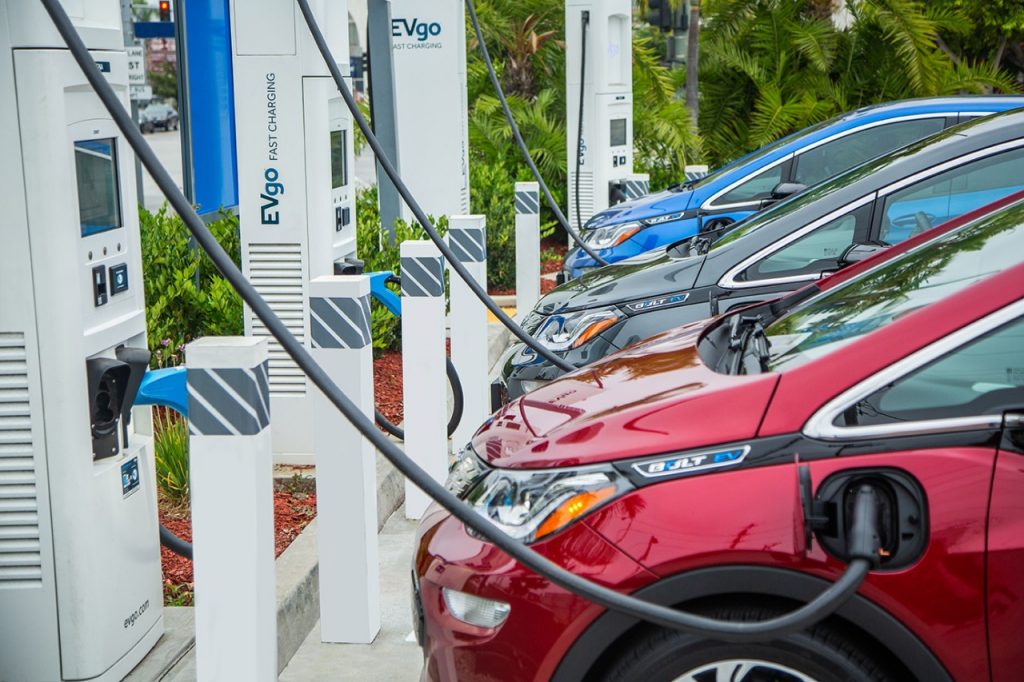
Now having said all that, there was actually a company called COMOS that tried to roll out an all-electric car sharing service over here in the past. Judging by the fact that not many have heard of it however, it probably does not need any further elaboration into how successful this endeavour was.
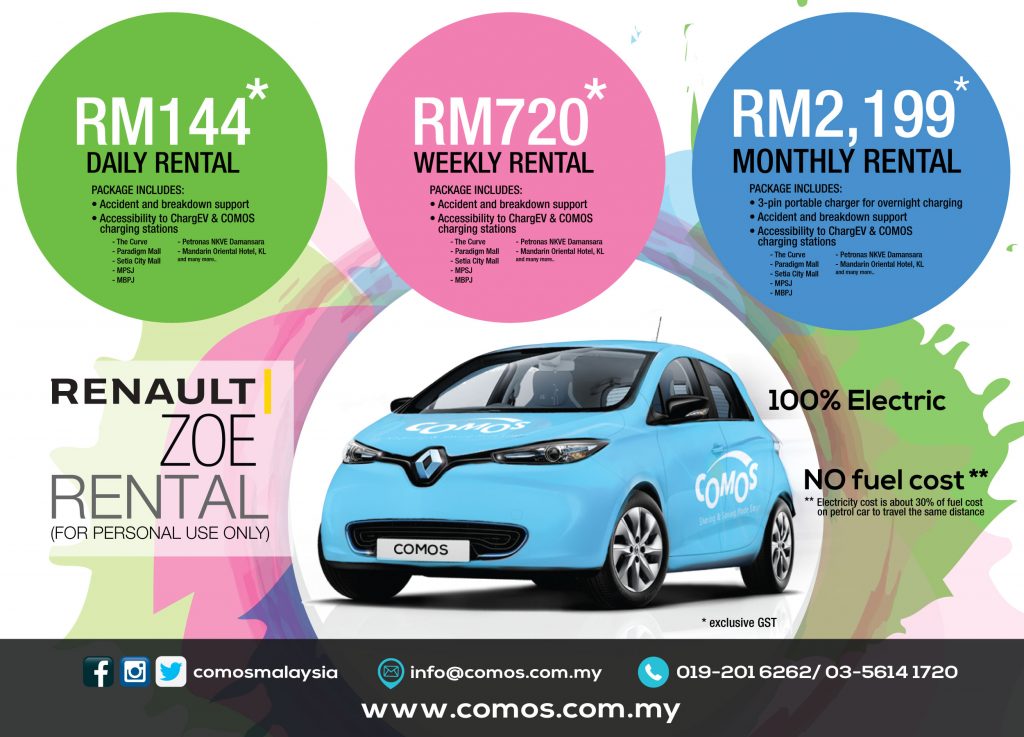
Going by historical evidence then, it would realistically seem that this expansion may just be yet another feeble attempt at kick-starting an industry that our nation is woefully behind on. Though there might just be a small chance that if the project is performed on a sufficiently large scale, it could perhaps really be the impetus needed for Malaysia to eventually be a player in the larger international EV game(?)
